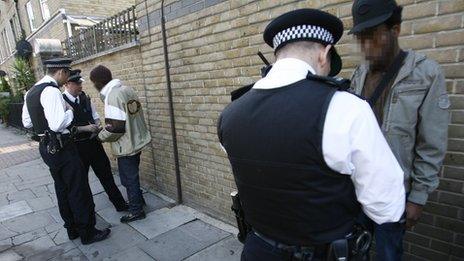Police stop-and-search rules to apply to vehicle stops
- Published
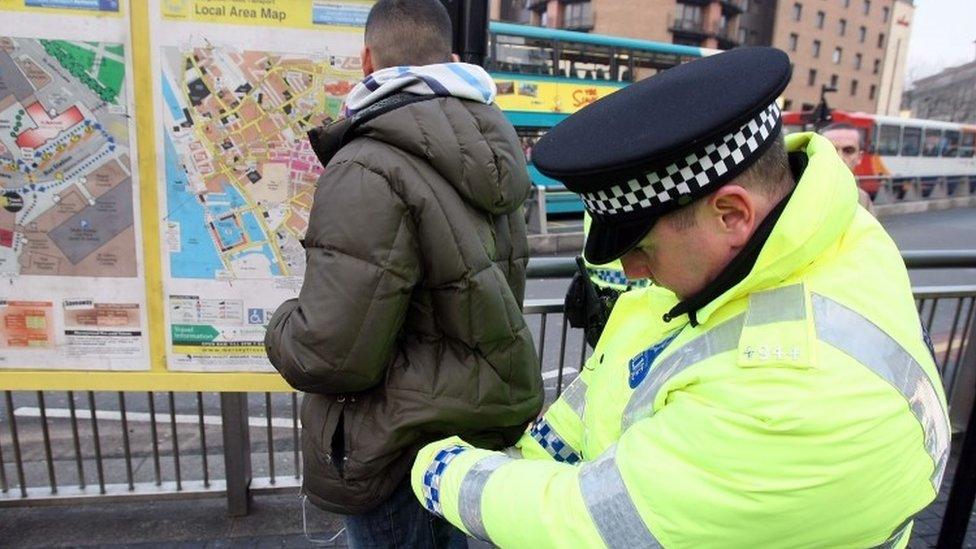
A 'best use of stop and search' code was introduced in 2014
Rules governing police stop and search in England and Wales are to be extended to vehicle stops made under the Road Traffic Act, the Home Office says.
The move is intended "to make things more transparent", a spokesman said.
Figures show black and minority ethnic people are more likely to be pulled over, but not arrested or fined, the home secretary has said.
The rules will require police to record the driver's ethnicity, the reason for the stop and the outcome.
A Home Office spokesman said the "best use of stop and search", external code would be extended to cover stops made under the Road Traffic Act.
No date has been set for when the rules will be adopted.
Steve White, chairman of the Police Federation of England and Wales, said: "We await to see the full details, but anything that gives communities greater confidence in the police is important."
Less scrutiny
Home Secretary Theresa May told the Times, external: "Figures show that if you are from a black and ethnic minority community, you are more likely to be stopped by police under the Road Traffic Act but actually less likely to be arrested or fined.
"One of the things I am very clear about is that I didn't take action on stop and search to see the police using other things in a way that could be questioned."
Mrs May's comments came exactly a year after a report, external by HM Inspectorate of Constabulary (HMIC) urged the Home Office and chief constables to take action in this area within 12 months.
The report said: "It is certainly the case that many people assume that being stopped by a police officer when they are in their car has the same status as being stopped and searched when, in fact, the level of scrutiny and accountability that the officer is under is significantly less than is the case for stop and search."
HMIC said it had "serious concerns about there being no requirement to record these stops" and "forces cannot demonstrate to us that they are using these powers effectively and fairly".
It recommended that by March this year, chief constables should agree and implement minimum recording standards for police use of the Road Traffic Act and the Home Office "should establish a requirement for sufficient data to be recorded" and provide guidance to officers about how their powers should be used.
The move to increase scrutiny of vehicle stops comes two years after police forces in England and Wales adopted a new code of conduct on stop and search.
The home secretary had said the practice was being misused so often it was damaging relations between the public and police.
And an Equality and Human Rights Commission report the previous year had said black and Asian people were still far more likely than white people to be stopped and searched by police.

Best use of stop and search code
Record outcome of stops in more detail to allow assessment of how forces interpret the rules
Record broader range of outcomes, including penalty notices and cautions, to help understand how successful each stop and search is
Allow members of the public to apply to accompany officers on patrols
Make forces explain publicly how stops are used if they receive complaints over a set "trigger" level
Only use "no suspicion" Section 60 power when "necessary" to prevent serious violence
Raise level of authorisation required for Section 60 powers from police inspector to officer above rank of chief superintendent
Limit initial use of Section 60 powers to 15 hours, from previous 24 hours, and "communicate with communities" about purpose and success of such use

In the year ending March 2015, Home Office data showed there were 541,000 stop and searches, external in England and Wales, down 40% from the year before.
In addition to collecting data on vehicle stops, Mrs May is also to tell forces to overhaul how they record the use of Tasers.
"Police are now going to collect much better figures and data. I have been hearing stories, for example, of Tasers having been used in mental health wards and you think, 'Hang on a minute, what is happening here?'" she said.
Some forces will pilot the new rules on Tasers next month. They are expected to be introduced fully across England and Wales in October.
- Published22 October 2015
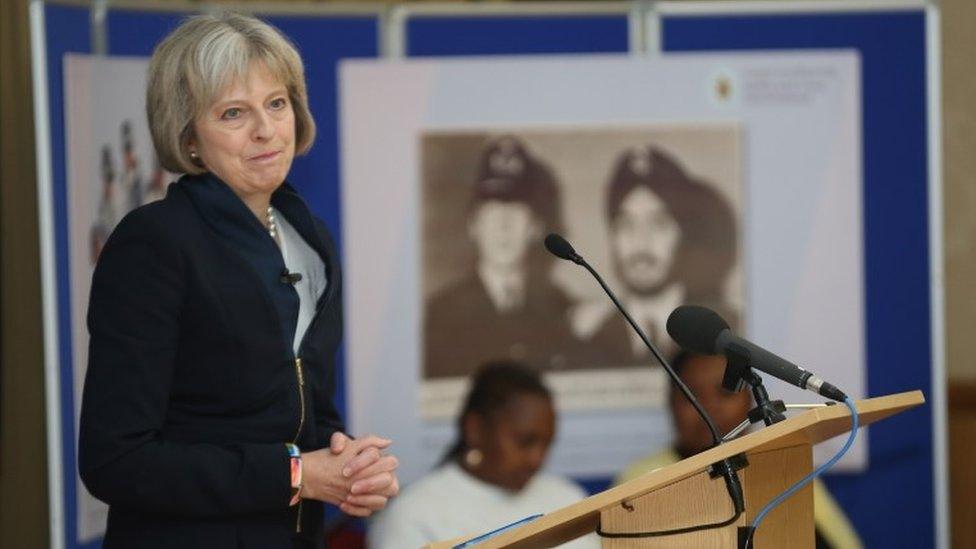
- Published26 August 2014
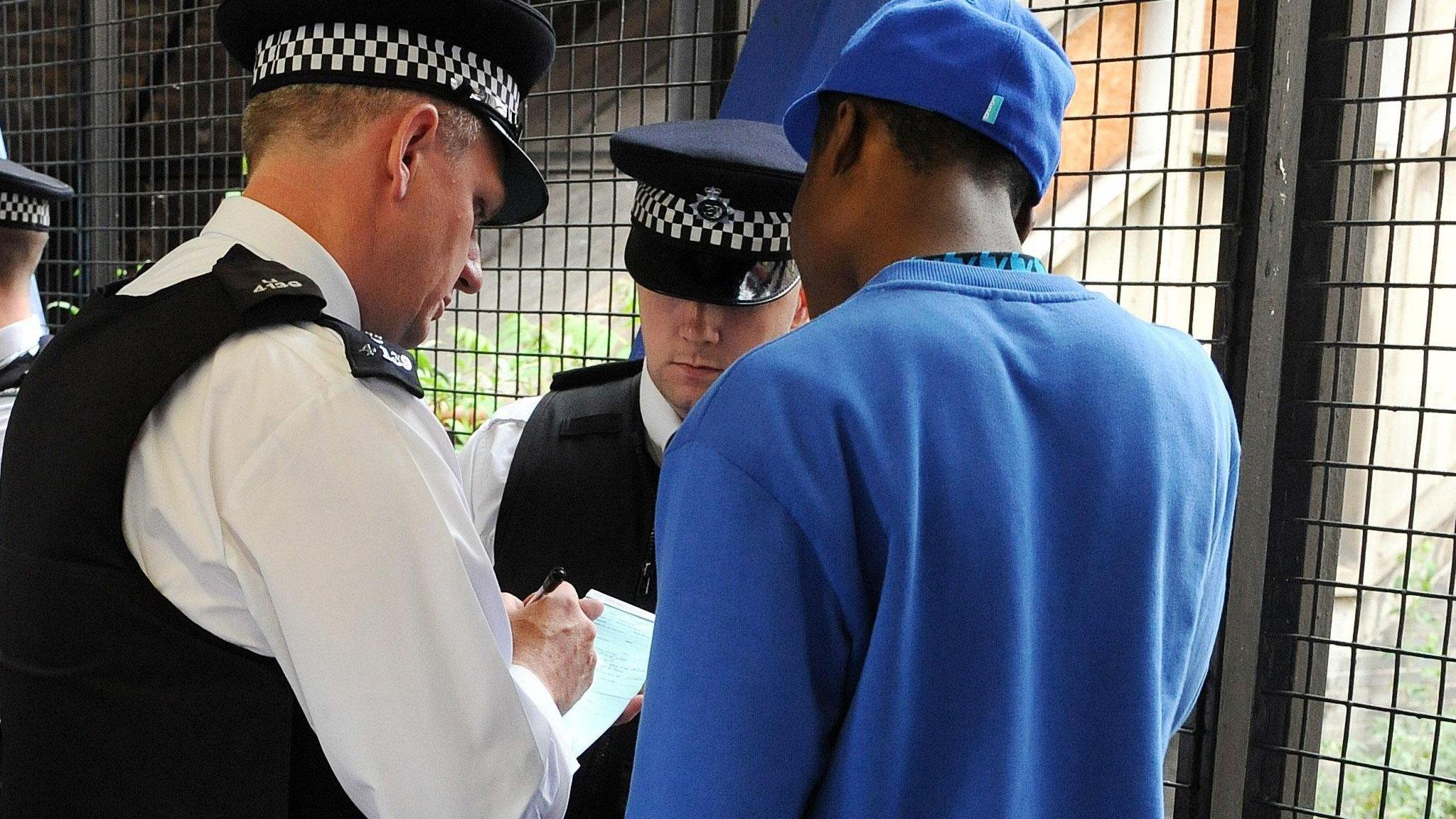
- Published30 April 2014
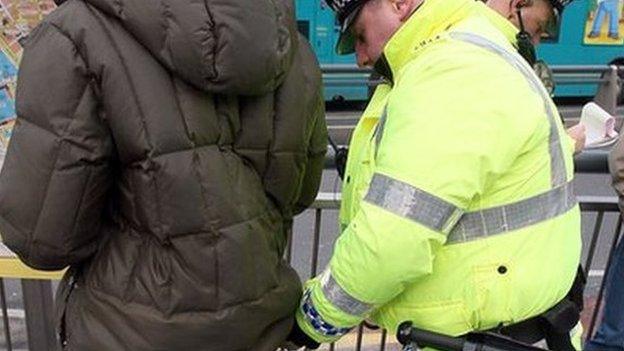
- Published25 March 2014
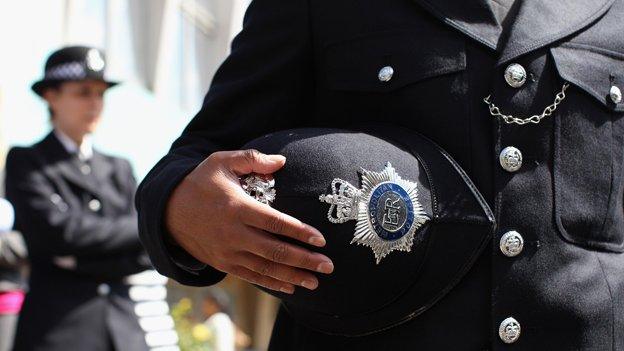
- Published8 January 2014
- Published11 November 2013
